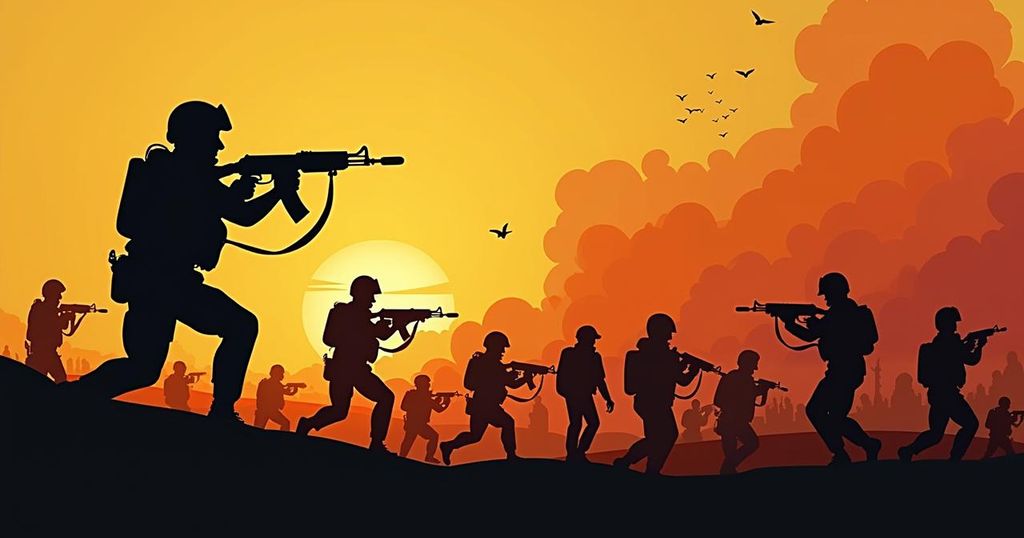Escalating Conflict: Hezbollah and Israel Amidst Iranian Strikes

The conflict between Israel and Hezbollah has escalated, with recent attacks leading to casualties and military responses. Key players, including Italy, Jordan, and India, are responding to the situation with calls for restraint and diplomatic engagement. The geopolitical implications are significant as tensions rise and military engagements occur along the border.
Israel is currently engaged in combat with Hezbollah forces in southern Lebanon, following a significant escalation of military activities in the region. Reports from Israeli media indicate that helicopters were deployed to evacuate wounded soldiers from border areas after a Hezbollah attack. Experts suggest that Israel’s potential military responses to Iranian actions may fall short in effectively targeting Iran’s nuclear capabilities, which are fortified underground. Andreas Krieg, a senior lecturer at King’s College London, emphasized the limitations of military action, asserting that any retaliation by Israel will have to be more severe than previous responses due to the increased impact of Iranian strikes. Meanwhile, Italian Prime Minister Giorgia Meloni has called for a meeting of G7 leaders to address the escalating crisis, expressing profound concern regarding developments in Lebanon and the Middle East. Jordan has also asserted its stance, with government officials stating their commitment to avoiding the country becoming a battlefield. Jordanian airspace has been shut down after missiles reportedly entered its territory, injuring three individuals in the process. There are indications that Israeli forces made a brief incursion into Lebanese territory, further heightening tensions in the area. As the situation escalates, India has expressed its deep concern and urged all parties to exercise restraint and resolve the conflict through diplomatic means. In response to Iran’s missile attacks targeting Israel, Israeli leaders have committed to a forceful retaliation. Israeli Foreign Minister Israel Katz criticized UN Secretary-General Antonio Guterres for not explicitly condemning Iran’s actions, declaring his entry into Israel would be prohibited as a result. Hezbollah has warned that their recent actions are merely the beginning of their response to Israeli aggression, indicating a firm commitment to their operations against Israeli forces. Mohammad Afif, a spokesperson for Hezbollah, stated that their capabilities and readiness to counter Israel remain integral to their strategy, reflecting a determination to continue their operations in the face of military attacks from Israel. Various videos and reports document the missile strikes during Iran’s recent operations, underscoring the seriousness of the current conflict.
The ongoing conflict between Israel and Hezbollah, alongside Iran’s military actions, has intensified regional tensions, particularly following recent missile strikes. Israel has faced significant threats from Hezbollah and Iran, leading to debates over the effectiveness of military retaliation strategies. The geopolitical dynamics are complicated by international responses, with nations like Italy and India actively engaging in discussions regarding the crisis, highlighting the potential for wider regional implications.
In conclusion, the current conflict between Israel and Hezbollah, exacerbated by Iranian missile strikes, signifies a troubling escalation of hostilities that may result in significant regional instability. As various governments express concern and advocate for diplomatic resolutions, the risks associated with military responses and retaliatory actions heighten the potential for a broader conflict in the region. The assurances from Hezbollah indicate a firm stance, suggesting that the confrontation is set to continue unless diplomatic steps are taken to address underlying grievances.
Original Source: www.aljazeera.com








